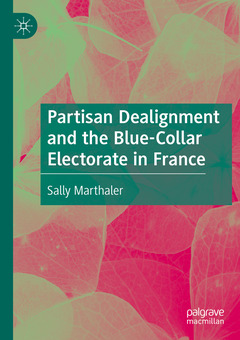Description
Partisan Dealignment and the Blue-Collar Electorate in France, 1st ed. 2020
Author: Marthaler Sally
Language: English
Subject for Partisan Dealignment and the Blue-Collar Electorate in...:
Keywords
partisanship; dealignment; political parties; voter behaviour; French politics; blue-collar electorate; blue-collar partisanship; blue-collar voters; young voters; policy convergence; condition ouvrière; party manifestos; ideological conflict; political sophistication; political mobilisation; political trust; parti socialiste; parti communiste français; Front National
Approximative price 52.74 €
In Print (Delivery period: 15 days).
Add to cartPublication date: 01-2021
234 p. · 14.8x21 cm · Paperback
Approximative price 79.11 €
In Print (Delivery period: 15 days).
Add to cartPublication date: 01-2020
234 p. · 14.8x21 cm · Hardback
Description
/li>Contents
/li>Biography
/li>Comment
/li>
Analyses changes in the political behaviour of blue-collar voters and in party political competition in France
Adopts an empirical and conceptual approach, dealing with both elements of the bilateral relationship between voters and parties
Employs evidence drawn from six survey datasets collected in French elections between 1978 and 2012, and data from public opinion polls, party manifestos as well as the historical record

